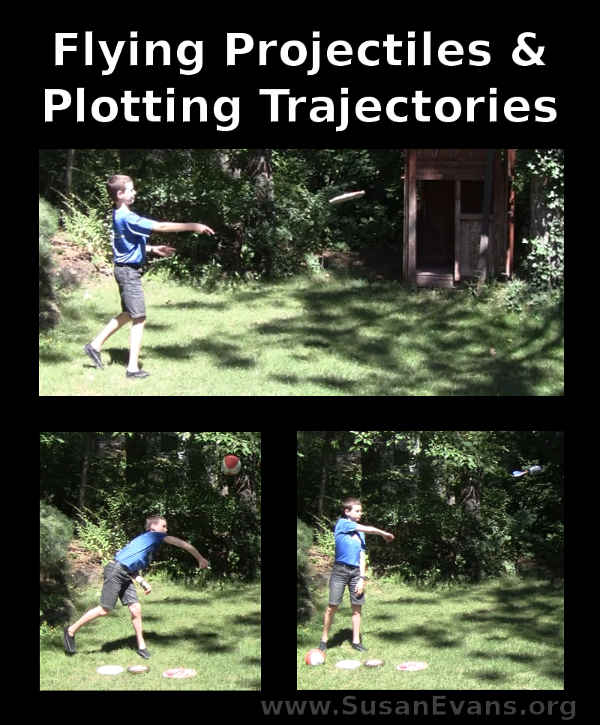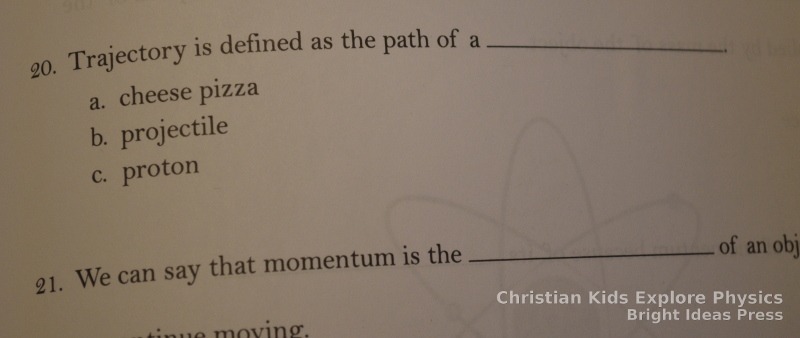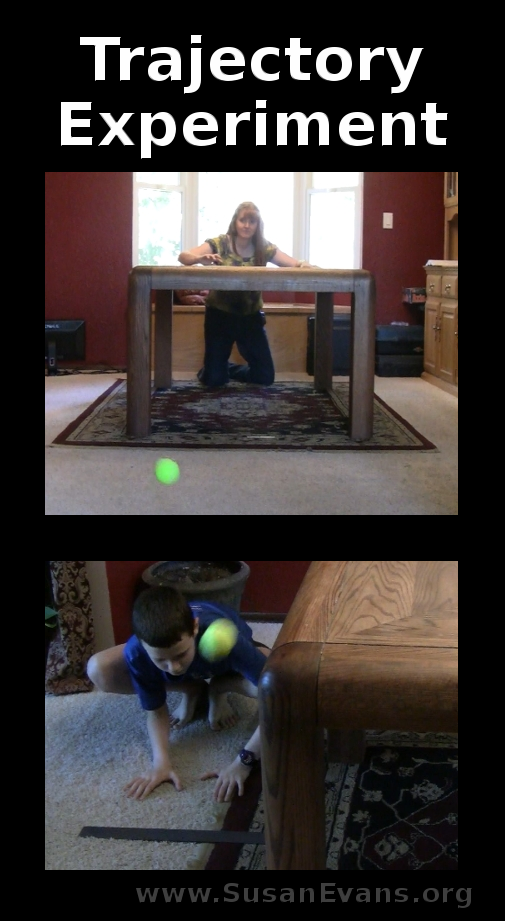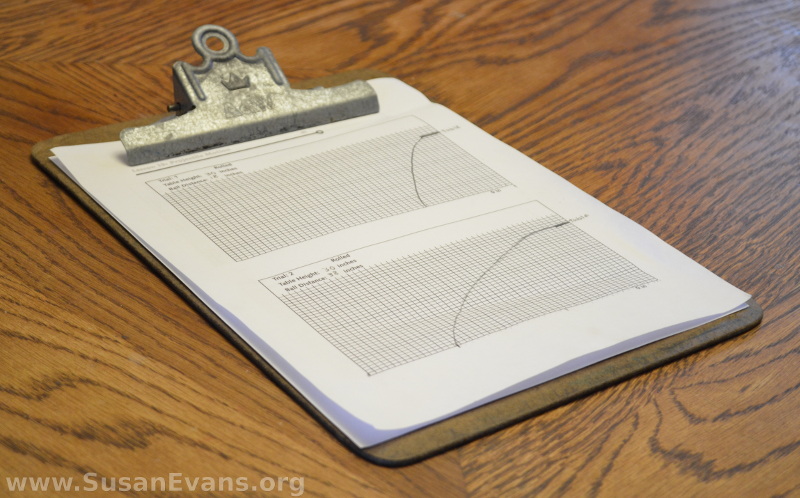Today we will be playing with flying projectiles and plotting trajectories. Yes, physics can be super fun when it’s hands-on!
First you will want to grab several objects that you don’t mind tossing into the air. We chose the following objects: a football toy, a small basketball, a frisbee, an over-sized toy clock, and a frozen cheese pizza.
Flying Projectiles Experiment (video)
This post contains affiliate links. I was compensated for my work in writing this post.
We got the idea to toss a pizza in the air as a projectile because of this quiz question from Christian Kids Explore Physics by Bright Ideas Press:
One of my sons insisted that a cheese pizza could very well be a projectile. Ha!
So what exactly is a projectile?
A projectile is something that can be sent flying through the air. How far the projectile flies through the air depends on three things:
- The speed of the projectile (how hard you throw the ball)
- The force of gravity (it pulls down on the object)
- The angle of launch (the higher the angle, the farther the object will go)
Then what is a trajectory?
A trajectory is the path of a projectile. If you want to plot the trajectory of a tennis ball rolling off a table, you will need the following items:
- a tennis ball
- a table
- a measuring tape
- masking tape
- charts from the book
As you can see in the video, we rolled the ball off the table with with slow, medium, and fast speeds, and we plotted those trajectories. (You mark the floor at the edge of the table with the masking tape to use that as a starting point to measure how far the ball flies through the air.)
We also dropped a ball straight down to see if there was any trajectory at all. You can see the results of our experiment in the video above. It was super fun!
Tags: Christian Kids Explore Physics, Homeschooling, physics, science








My husband makes pizza and tosses dough on Sundays all through football season. He once got it caught in the ceiling fan!
That is hilarious! I have never learned to toss pizza dough.
Saving this one for later…have a physics lesson all planned for 6th grade that would fit in great with this.
Glad the experiment fits in with what you’re doing!